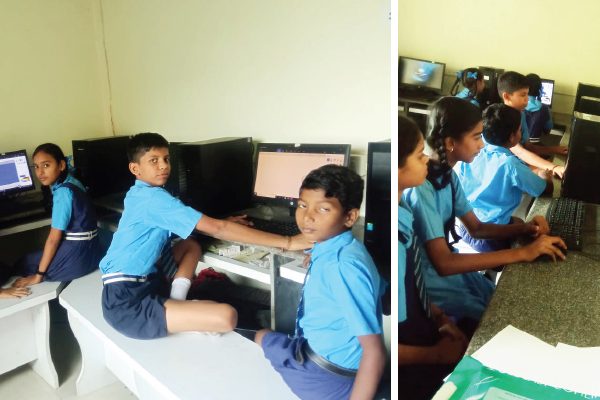An association between academia and industry has always been significant in facilitating research, knowledge, and creating a skilled workforce.
The industry gains work-ready talent with specialized knowledge and practical training, and students and academic institutions benefit from the exposure to real-world industry operations, challenges, and opportunities to work on real-time technologies and innovations. Such collaborations prove to be of even greater significance when global industry leaders like ECU Worldwide collaborate with educational institutions for case-study based learning with a global perspective.
Over the years, it has been observed that stellar ideas have emerged from campuses like MIT, Stanford, Wharton, etc. where cutting-edge research is done in close collaboration with industry experts. Also, indeed, the game-changing idea behind Facebook has come mainly from the campus where Mark Zuckerberg was studying. The social media giant’s recent innovations in robotics and artificial reality too, have largely come about as a result of his close industry-academia collaboration.
Taking a leaf out of their books, even leading colleges and universities in India have taken it upon themselves to integrate industry interactions into their curriculum and help students learn and gain from actual industry case studies, collaborative projects, and lectures from experts.
Strategy lessons from the global leader in LCL consolidation
Faculty members and students from K J Somaiya Institute of Management, a reputed MBA college in Mumbai, India, prepared a case study on ‘ECU Worldwide – Strategy to reach USD 2 billion’. It mapped the growth trajectory of ECU Worldwide, a global leader in LCL consolidation, and explored its various organic and inorganic growth strategies that have helped reinforce its position as a global logistics powerhouse, successfully operating across 180 countries the world over.
The case study that was prepared with guidance and inputs from Mr. Parthasarathy VS, Vice Chairman, Allcargo Group, along with the organization’s strategy team and Chief Strategy Officer Ravi Jakhar, would be included in the curriculum to impart case study-based education to MBA students. It has also been adjudged as the ‘Best Case Study of the Year, 2022.’
Bolstering tomorrow’s leaders with global perspectives
When students and youngsters learn from industry case studies and examples, it helps build the bridge between conceptual and theoretical knowledge and its actual application in relevant industry scenarios.
For example, the case study on ECU Worldwide highlights key growth levers that the organization implemented as part of its transformative journey and offers valuable insights into a homegrown organization’s global expansion.
It opens up young minds to dare to dream big and think globally. In a world where distances are constantly reducing with the advent of technology, having a global outlook is certainly a skill that young students and future leaders ought to imbibe.
Boosting entrepreneurial ambitions
When considering an organization like ECU Worldwide, a case study on its growth and progress is also a journey that captures the vision, passion, and determination of its founder and leadership team.
An opportunity where students can interact with professionals and work with them to create a case study is ideal for them to gain inspiration and wisdom not just on the strategic functioning of an organization in the real world, but also everything it takes to commit to an idea, turn it into reality and grow it into a burgeoning business with global ambitions.
Industry-academia partnerships for cutting-edge research
In addition to working on case studies with industry leaders, research is another area where industry-academia partnerships hold great potential.
One of the remarkable initiatives in this area is the Centre of Excellence in Logistics and Supply Chain Management which has been established at the National Institute of Industrial Engineering (NITIE), one of India’s premier engineering and management institutions. The Centre fosters a robust R&D ecosystem and leverages the potential of cutting-edge digital technologies and advanced learning techniques to drive efficiency and productivity in the logistics sector.
Such projects and case studies too create a valuable knowledge bank that even future generations of students can continue learning from.
Conclusion
Ushering in a whole new decade of emerging technologies, are fundamental changes that impact industries, the economy, and society. And industry-academia collaborations that enable effective frameworks to innovate and commercialize solutions that have the potential to disrupt the industries’ status quo are definitely a step in the right direction.














